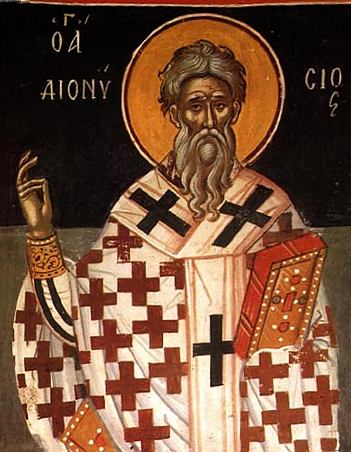
St. Dionysius the Great was Pope of Alexandria from 248 to 264. During that time, the Church of Alexandria suffered horrible persecution. Just as that was dying down, an epidemic broke out in the city, just as Pascha was approaching. St. Dionysius described the epidemic, and the Church’s response, in a letter to some of his flock outside of Alexandria. It is especially relevant today, as our current church leaders try to respond to the coronavirus pandemic, which is also happening as we prepare for Pascha.
St. Dionysius’ letter was printed by Eusebius in his seminal Church History, chapter 7. The following English translation is by G.A. Williamson, published by Dorset Press in 1965 and again in 1984.
***
[Eusebius writes:] Later, when a severe epidemic followed the war just as the festival [Pascha] was approaching, he [Dionysius] again communicated in writing with the Christian community, revealing the horrors of the disaster:
Other people would not think this a time for festival: they do not so regard this or any other time, even if, so far from being a time of distress, it is a time of unimaginable joy. Now, alas! all is lamentation, everyone in mourning, and the city resounds with weeping because of the numbers that have died and are dying every day. As Scripture says of the firstborn of the Egyptians, so now there has been a great cry: there is not a house in which there is not one dead — how I wish it had been only one!
Many terrible things had happened to use even before this. First we were set on and surrounded by persecutors and murderers, yet we were the only ones to keep festival even then. Every spot where we were attacked became for us a place for celebrations, whether field, desert, ship, inn, or prison. The most brilliant festival of all was kept by the fulfilled martyrs, who were feasted in heaven. After that came war and famine, which struck at Christian and heathen alike. We alone had to bear the injuries they did us, but we profited by what they did to each other and suffered at each other’s hands; so yet again we found joy in the peace which Christ has given to us alone. But when both we and they had been allowed a tiny breathing-space, out of the blue came this disease, a thing more terrifying to them than any terror, more frightful than any disaster whatever, and as a historian of their own [Thucydides] once wrote: ‘the only thing of all that surpassed expectation’. To us it was not that, but a schooling and testing as valuable as all our earlier trials; for it did not pass over us, though its full impact fell on the heathen… [ellipses in original]
Most of our brother-Christians showed unbounded love and loyalty, never sparing themselves and thinking only of one another. Heedless of the danger, they took charge of the sick, attending to their every need and ministering to them in Christ, and with them departed this life serenely happy; for they were infected by others with the disease, drawing on themselves the sickness of their neighbors and cheerfully accepting their pains. Many, in nursing and curing others, transferred their death to themselves and died in their stead, turning the common formula that is normally an empty courtesy into a reality: ‘Your humble servant bids you good-bye.’ The best of our brothers lost their lives in this manner, a number of presbyters, deacons, and laymen winning high commendation, so that death in this form, the result of great piety and strong faith, seems in every way the equal of martyrdom. With willing hands they raised the bodies of the saints to their bosoms; they closed their eyes and mouths, carried them on their shoulders, and laid them out; they clung to them, embraced them, washed them, and wrapped them in grave-clothes. Very soon the same services were done for them, since those left behind were constantly following those gone before.
The heathen behaved in the very opposite way. At the first onset of the disease, they pushed the sufferers away and fled from their dearest, throwing them into the roads before they were dead and treating unburied corpses as dirt, hoping thereby to avert the spread and contagion of the fatal disease; but do what they might, they found it difficult to escape.
Leave a Reply